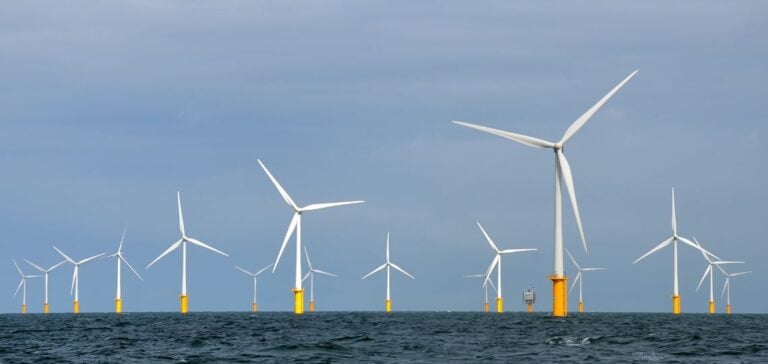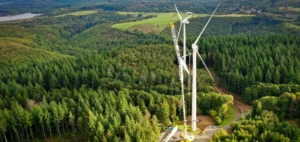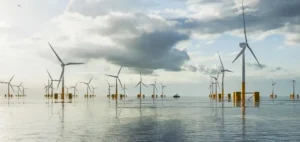The recent approval of a state aid program by the European Commission marks a significant step forward in support for offshore wind power in Belgium.
The €682 million program is designed to finance the construction and operation of a wind farm in the North Sea, with an installed capacity of 700 megawatts (MW).
The project is designed to generate at least 2.6 terawatt-hours (TWh) of renewable energy per year, helping to increase the share of renewable energies in the Belgian energy mix.
Public support from the European Commission is essential to reduce the financial risks associated with such infrastructure projects.
Indeed, the construction of an offshore wind farm requires considerable investment, and state aid makes it possible to attract private investors while guaranteeing the economic viability of the project.
This program is in line with the European Union’s climate objectives, which aim to increase the share of renewable energies to 42.5% by 2030.
Details of the Offshore Wind Power Project
The offshore wind farm supported by this state aid program represents a major step forward in Belgium’s energy transition.
With a capacity of 700 MW, it is expected to generate an annual output of at least 2.6 TWh of renewable energy.
This initiative is in line with Belgium’s commitments to reducing greenhouse gas emissions and ensuring energy security.
By increasing renewable energy capacity, the country aims to reduce its dependence on fossil fuels and stabilize electricity prices.
The €682 million state aid package includes direct subsidies to cover the construction and operating costs of the wind farm.
This public support is crucial to encourage the development of large-scale renewable energy projects, while complying with EU regulations on state aid.
The European Commission has validated this program, considering that it does not distort competition in the single market, which is a fundamental aspect of ensuring a fair economic environment.
Economic and industrial implications
The approval of this state aid is seen as a catalyst for accelerating the energy transition in Belgium.
Offshore wind power is recognized as a reliable, large-scale source of renewable energy, essential for achieving the EU’s climate objectives.
By developing this capacity, Belgium can not only enhance its energy security, but also create significant economic opportunities for local and international companies involved in the renewable energy sector.
The project will require substantial investment in infrastructure, including the construction of foundations for the wind turbines and the installation of submarine cables to connect the wind farm to the power grid.
These developments are likely to stimulate the local economy, generating jobs and fostering innovation in the marine and renewable energy sectors.
In addition, increasing offshore wind power capacity could help stabilize electricity prices, bringing benefits to consumers.
Challenges and delays in implementation
Despite the potential benefits, the project faces several challenges that could hinder its implementation.
The wind industry has reported significant delays in obtaining the necessary permits for renewable energy projects.
These delays may slow down the deployment of renewable energies in the region, compromising the EU’s climate objectives.
The need for effective coordination between local and national authorities is crucial to overcoming these obstacles.
Another major challenge is the slow pace of power grid upgrades.
To maximize the efficiency of offshore wind farms, it is imperative that interconnections between countries are strengthened and that grids are adapted to integrate large quantities of renewable energy.
Without these improvements, grid congestion could limit wind power generation capacity, reducing the project’s positive impact on the energy market.
Political and environmental consequences
The approval of this state aid demonstrates the EU’s political commitment to supporting significant investment in renewable energies.
It also reflects the European Commission’s willingness to allow member states a degree of flexibility in meeting their national climate objectives.
By supporting projects like this one, the EU is strengthening its position as a key player in the fight against climate change.
By increasing its offshore wind energy capacity, Belgium is helping to reduce CO2 emissions and decarbonize its energy sector.
This project is in line with the EU’s ambition to achieve carbon neutrality by 2050.
The environmental benefits associated with offshore wind energy are undeniable, but it is essential to manage the potential impacts on marine ecosystems and ensure harmonious coexistence with other economic activities.
Future prospects and recommendations
To maximize the impact of state aid and achieve the EU’s ambitious climate targets, it is crucial to speed up the permitting process for renewable energy projects.
National governments and EU regulators must work together to simplify administrative procedures and reduce delays.
A proactive approach could facilitate the rapid deployment of the necessary infrastructure.
At the same time, increased investment in electricity grid infrastructure is needed to guarantee grid stability and facilitate the integration of new renewable energy capacity.
Better interconnection between EU countries could also help to balance electricity production and demand, thereby strengthening the resilience of Europe’s energy system.
The approval of Belgian state aid for offshore wind power represents a significant step forward in the country’s energy transition.
However, the success of this project will depend on overcoming the regulatory and infrastructural challenges that lie ahead.






















